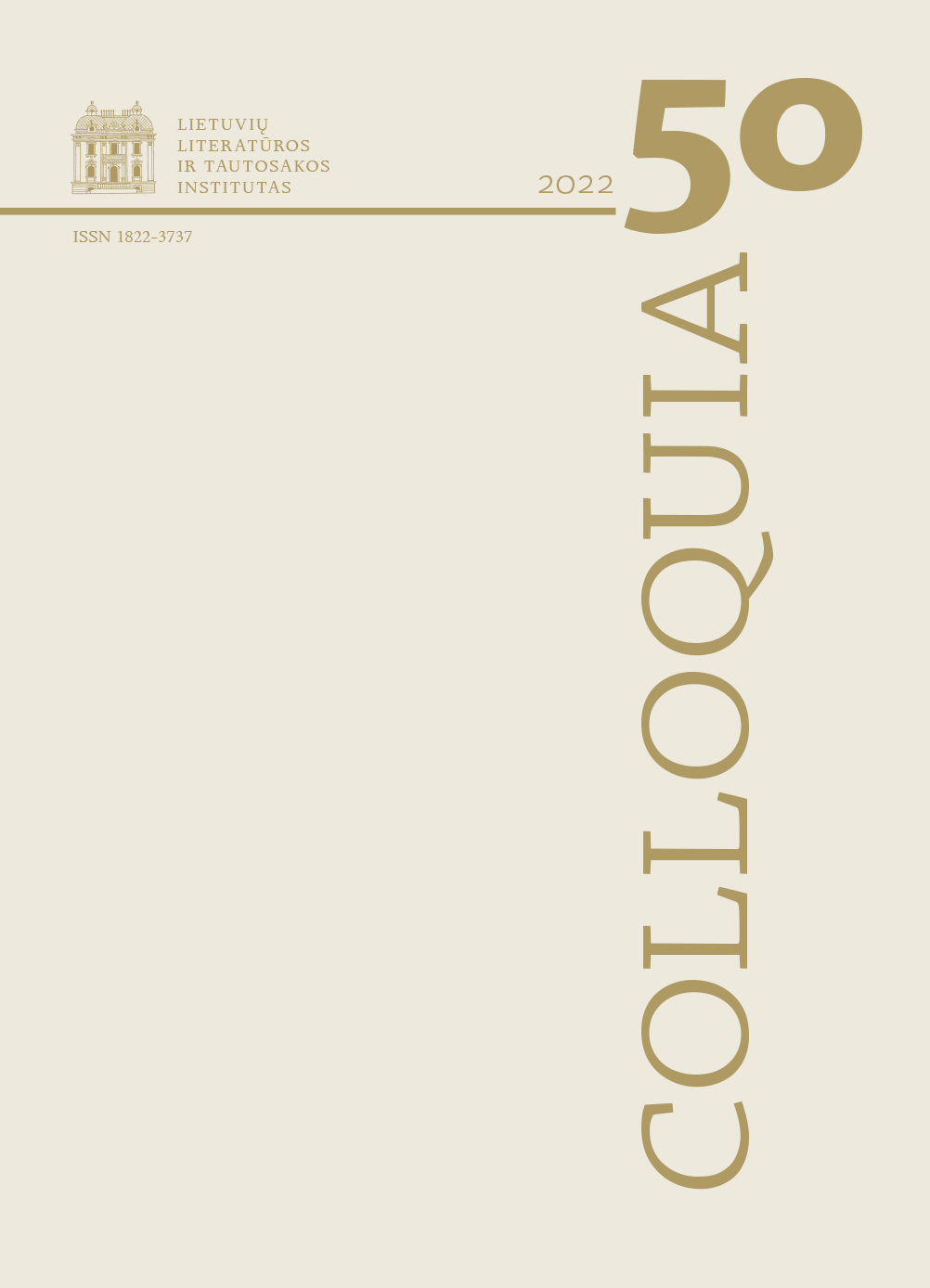The Lost Place of Childhood: Writer Indra Gubiņa’s Memories, Life and the Literary Geographical Aspect
Abstract
Researching Latvian literature in exile is a relatively new phenomenon that emerged in Latvia at the turn of the 1980s and 1990s. As the writers’ archives became accessible, new opportunities for research opened up. In this article,1 I look into the historical situation in the context of World War II, marking out potential directions of my research and a theoretical basis. Using the archives of the Latvian writer in exile, Indra Gubiņa, I focus on the city of her childhood, Jelgava, as a lost place that acquired a symbolic significance in author’s memories, the course of her life and literary geography. The article explores the nuances of Gubiņa’s double belonging, her connection to the place of her childhood and the Latvian language. The methodology used in my research marks out the potential and prospective approach to the creative oeuvre of Gubiņa from the theoretical point of view of lost place, the topography of childhood and literary geography. This kind of research on the life and works of a single writer serves as a possibility to widen the field of investigation in studying literature, taking into consideration a broader spatial context, and working with the new tools of research.
Downloads
Most read articles in this journal
- Dalia Satkauskytė, Contemporary Literary Criticism: The Challenges of Democratisation , Colloquia: Vol. 51 (2023): Colloquia
- Giedrė Ivanova, Music in the Works of Ignas Šeinius: A Few Chords , Colloquia: Vol. 49 (2022)
- Ieva Šakelaitė, Emancipatory Poetry: The Žemaitė Square Readings as Feminist Artivism , Colloquia: Vol. 52 (2023): Colloquia
- Iveta Leitane, Gastro-Poetics in Lithuanian Yiddish Literature of the Interwar Period: The Early Work of Moyshe Kulbak (1896-1937) , Colloquia: Vol. 49 (2022)
- Jūratė Jasaitytė, Preserving the Dance: R. M. Rilke’s Concern for the Preservation of Objects and its Reflection in Lithuanian Poetry , Colloquia: Vol. 51 (2023): Colloquia
- Jurgita Žana Raškevičiūtė, The Individual and the Holocaust in Icchockas Meras’s Stalemate , Colloquia: Vol. 39 (2017)
- Brigita Daugėlaitė, Kazys Boruta in the Soviet Security Surveillance Case , Colloquia: Vol. 52 (2023): Colloquia
- Justina Sinkevičiūtė, Virginijus Gasiliūnas, Dalia Satkauskytė, Irena Balčiūnienė, Manfredas Žvirgždas, Giedrė Kazlauskaitė, Šiandieniai Vinco Mykolaičio-Putino vertinimai , Colloquia: Vol. 51 (2023): Colloquia
- Jānis Oga, Magical Realism under the Soviet Occupation: The Case of Zigmunds Skujiņš , Colloquia: Vol. 51 (2023): Colloquia
- Laima Laučkaitė, The Iconography of Jewish Vilna during the First World War , Colloquia: Vol. 48 (2021)




